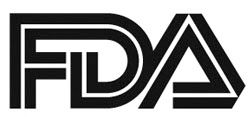Pegfilgrastim Biosimilar from Sandoz Approved by the FDA
Pegfilgrastim-bmez, a biosimilar of pegfilgrastim, is now FDA approved to decrease the incidence of infection caused by febrile neutropenia in patients with non-myeloid malignancies receiving myelosuppressive therapy, according to a press release from Sandoz Inc., a division of Novartis. LA-EP2006 is already being sold in Europe and the developer now plans to bring the drug to the United States this year.<sup> </sup><br />

Pegfilgrastim-bmez (LA-EP2006; Ziextenzo), a biosimilar of pegfilgrastim (Neulasta), is now FDA approved to decrease the incidence of infection caused by febrile neutropenia in patients with non-myeloid malignancies receiving myelosuppressive therapy, according to a press release from Sandoz Inc., a division of Novartis. LA-EP2006 is already being sold in Europe and the developer now plans to bring the drug to the United States this year.1
The FDA approval was based on data from analytical, pre-clinical, and clinical research, including the phase I bridging study (LA-EP06-104), which aimed to confirm that the pharmacokinetic (PK) and pharmacodynamic (PD) properties of LA-EP2006 matched the US pegfilgrastim product. Reportedly, similar PK and PD properties were seen in all 3 comparisons with no clinically meaning differences in safety or immunogenicity.1
The phase I study had a 3-way crossover design in order to address high inter-subject variability linked to target-mediated clearance. It was powered at 90% to achieve confidence intervals between 0.8 and 1.25 in co-primary end point pairwise comparisons. The study continues at 5 sites in the United States and 1 site in Germany, according to information presented at the 2018 ESMO Congress in October of 2018.2
The study included 169 healthy subjects aged 18 to 45 who were randomized to switch from either the proposed biosimilar to the reference pegfilgrastim or from reference pegfilgrastim to the proposed biosimilar. Both the proposed biosimilar and reference pegfilgrastim were given on day 1 with a 6-mg single subcutaneous injection. Investigators took pre-dose and post-dose blood samples for analysis.
Investigators could claim PK/PD if 90% (PK) and 95% (PD) confidence intervals were met for geometric mean ratios of the area under the serum concentration-time curve (AUC) from time of dosing and extrapolated to infinity (AUC0-inf), or to the last measurable concentration (AUC0-last), maximum observed serum concentration (Cmax), absolute neutrophil count (ANC) area under the effect curve from the time of dosing to the last measurable concentration (AUEC0-last) and ANC maximum effect attributable to the therapy under investigation (Emax). Measurements were completely contained within the predefined margin (0.8 to 1.25).3
LA-EP2006 is indicated for patients who are on myelosuppressive anti-cancer drugs. In the press release, Carol Lynch, president, Sandoz Inc, explained the importance of having the biosimilar available to this patient population, stating, “When a cancer patient with febrile neutropenia gets an infection, it can have serious consequences such as delays or dose reductions of chemotherapy.”
The company is the first to offer US physicians an option of long- or short-lasting biosimilar pegfilgrastim treatment. This serves an unmet need since a study from the Sutter Cancer Center and the Sutter Institute for Medical Research reported that more than 60,000 patients with cancer are hospitalized each year with evidence of neutropenia, including fever or infection. Reportedly, 4000 of those patients (6.8%) die while inpatient.1
The US approval of LA-EP2006 comes just over one year after the biosimilar was approved by the European Medicines Agency (EMA). The EMA approval indicated LA-EP2006 for preventing febrile neutropenia in patients receiving myelosuppressive chemotherapy, those with acute myeloid leukemia receiving induction or consolidation chemotherapy, patients with cancer undergoing bone marrow transplantation, those undergoing autologous peripheral blood progenitor cell collection and therapy, and those with severe chronic neutropenia. Their decision was based on the similarity between LA-EP2006 and the Neulasta seen in clinical trials, and the safety, efficacy, and quality seen in studies like, PROTECT-1 (NCT01735175), and PROTECT-2 (NCT01516736).
Based on positive research, Sandoz resubmitted a biologics license application for LA-EP2006 to the FDA in April 2019, addressing an FDA complete response letter received in June 2016. The resubmission included new data from the pivotal PK/PD study.4
Pegfilgrastim is a bone marrow stimulate for producing, maturing, and activating neutrophils, a type of white blood cell. As treatment for non-myeloid malignancies, the drug has shown safety and efficacy.
LA-EP2006 joins the treatment landscape for non-myeloid malignancies along with 4 other agents that are approved in the United States: Neulasta, pegfilgrastim (CHS-1701), pegfilgrastim-jmdb (Fulphila), and pegfilgrastim-cbqv (Udenyca). With this approval, Sandoz hopes to expand patient access, increase healthcare savings, and fuel innovation. LA-EP2006 is also being studied in multiple breast cancer trials.
References
- Sandoz receives US FDA approval for long-acting oncology supportive care biosimilar Ziextenzo™ (pegfilgrastim-bmez) [press release]. Holzkirchen, Germany: Sandoz, Inc.; November 5, 2019.https://bit.ly/2Cg43Sl. Accessed November 5, 2019.
- Nakov R, Schussler S, Schier-Mumzhiu S, et al. A large multi-center, randomized, double-blind, crossover study in healthy volunteers to compare pharmacokinetics and pharmacodynamics of a proposed biosimilar pegfilgrastim with EU and US reference pegfilgrastim: methodological approach.Ann Oncol. 2018;29(suppl 8; abstr 1796P). doi: 10.1093/annonc/mdy300.110.
- Nakov R, Gattu S, Wang J, et al. Proposed biosimilar pegfilgrastim shows similarity in pharmacokinetics and pharmacodynamics to reference pegfilgrastim in healthy subjects [published August 5, 2018].J Clin Pharmacol.doi: 10.1111/bcp.13731.
- Sandoz resubmits biosimilar pegfilgrastim application to US FDA [press release]. Holzkirchen, Germany; April 3, 2019. https://bit.ly/2PM58cF. Accessed November 5, 2019.
Rugo Surveys Peers on Treatment After Metastatic Relapse of HR+, HER2– Breast Cancer
April 20th 2024During a Case-Based Roundtable® event, Hope S. Rugo, MD, FASCO, moderated a discussion on treatment options for a patient whose breast cancer recurred several years after adjuvant therapy.
Read More
Peers Discuss Role of Pola-R-CHP vs R-CHOP in Newly Diagnosed DLBCL
April 19th 2024During a Case-Based Roundtable® event, Haifaa Abdulhaq, MD discussed with participants whether the POLARIX trial influences their choice to use the pola-R-CHP as opposed to R-CHOP regimen for patients with newly diagnosed diffuse large B-cell lymphoma.
Read More